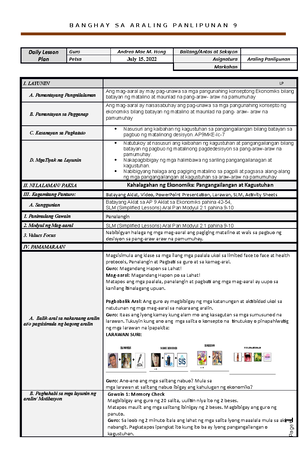- Information
- AI Chat
Was this document helpful?
L1 Metacognition - Notes for Lesson 1 in EDUC203
Course: Bachelor in Secondary Education (BSED 4101- S)
544 Documents
Students shared 544 documents in this course
University: Bestlink College of the Philippines
Was this document helpful?

LESSON 1: METACOGNITION
John Flavell- “Learning How to Learn”
- Coined the term “Metacognition” or thinking about thinking.
Metacognition
- The term comes from the root word meta, meaning "beyond", or "on top of“; cognition is “
mental process”
- higher-order thinking
Components of Metacognition
Metacognitive Knowledge
- Individuals knows about themselves
Metacognitive Regulation
- Set of activities that help people control their learning
Metacognitive Experiences
- Experiences on current and on-going cognitive endeavor.
Categories of Metacognitive Knowledge
Person Variable
- How one views himself as a learner
Task Variable
- Knowing what needs to be done
Strategy Variable
- Knowledge or skills to solve the problem
Metacognition and Expertise
- Experts can't explain the skills they use. (Tacit knowledge)
- Metacognitive strategies separate experts to novice
- Some adults can transfer metacognitive skills to adapt in new settings but some can't and
needed help in doing so.
Metacognition Skills
1. Self Monitoring
2. Noticing own comprehension
3. Skim unimportant information
4. Repeatedly rehearsing






